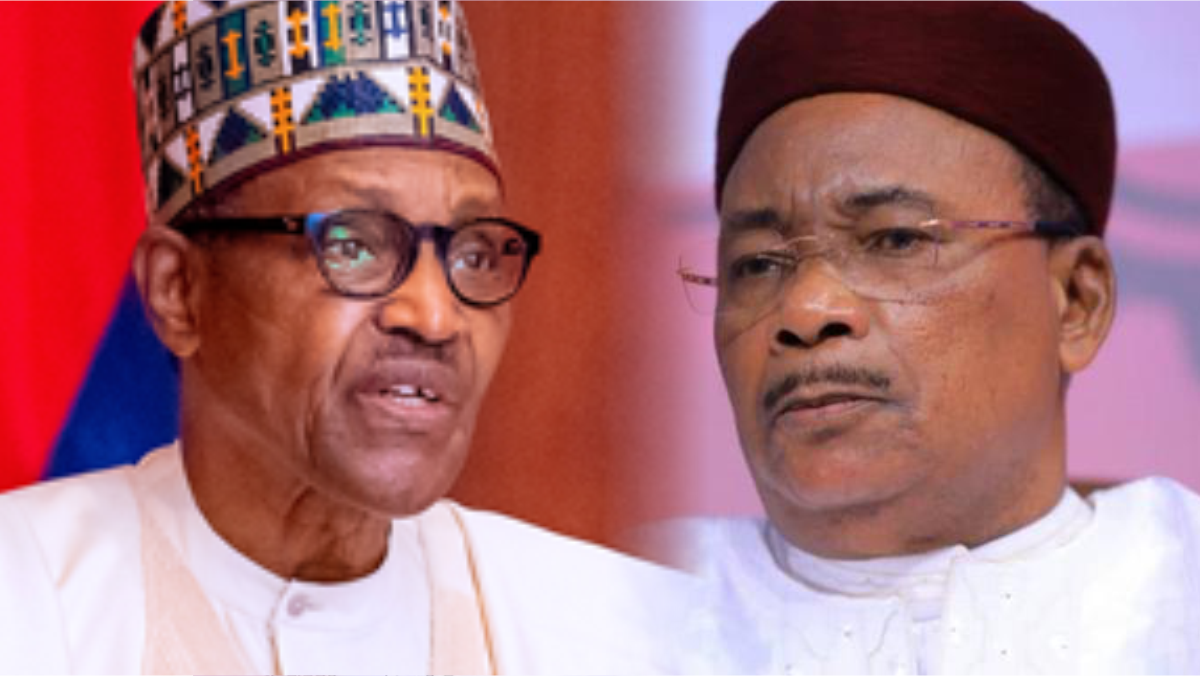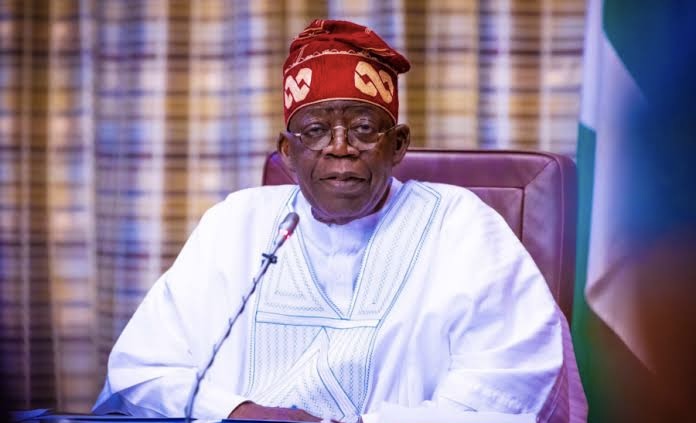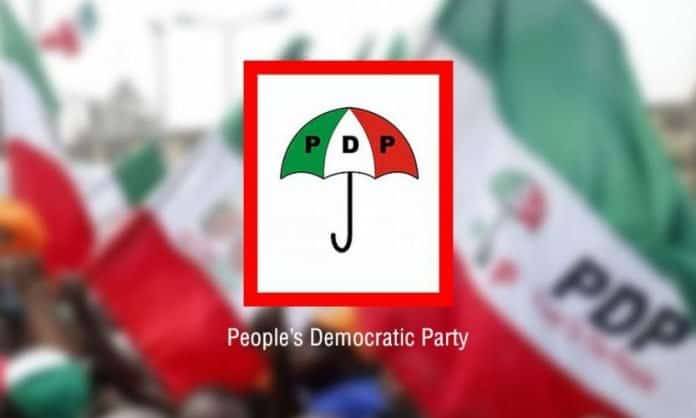Buhari’s obsession with Niger Republic harmful to Nigeria’s unity

On March 17, President Muhammadu Buhari named an expressway in the Federal Capital Territory (FCT) after then-President Issoufou Mahamadou of the Republic of Niger. The road is the first phase in the ongoing construction of the Outer Southern Expressway in Abuja.
At the inauguration of the road, the FCT minister, Muhammed Bello, said the gesture was in appreciation of the “brotherly relationship” between Nigeria and Niger, and in recognition of Issoufou’s “significant role in the promotion of peace in Africa.”
Bello’s reasons notwithstanding, Nigerians have questioned the rationale behind the naming. Normally, a road after an African president, especially for someone who is the 2020 recipient of the highly coveted Mo Ibrahim Prize, is not supposed to attract any criticism. Besides, in the same FCT are streets that are named after past African leaders and cities such as Ghana’s Kwame Nkrumah, Tanzania’s Julius Nyerere, and Kenya’s capital Nairobi.
Except that in the case of the Mahamadou Issoufou Expressway, many think that this is one too many gestures to the Republic of Niger. More than any other president in Nigeria’s recent history, Buhari has extended several warm hands of friendship to the West African neighbour; actions of which many Nigerians continue to question their reciprocatory benefit to Nigeria.
Nigeria is currently constructing a rail line from Kano to the Nigerien city of Maradi. The rail line project is supposed to be bilateral, however, the irony is that its entire cost of $1.959 billion will be borne by Nigeria. Surprisingly, this is to be done with a loan from China and will be paid back by Nigerians. The cost is said to exceed similar projects under the African Union’s Programme for Infrastructure Development in Africa (PIDA) by at least 100 per cent.
On March 12, ThisDay reported the minister of transport, Rotimi Amaechi, as saying the project was going to benefit Nigeria. The minister said the benefit was that the Nigerien government had agreed that its national cargoes would begin exporting through Nigeria’s rail track.
A landlocked country, the Republic of Niger exports and imports through intermediary countries. Nigeria wants a piece of the pie and is willing to spend billions of borrowed dollars to make that happen. To put the icing on the rail line project, we are begging the Nigeriens to allow us to build them a rail line. We are even prepared to build offices, a warehouse and provide unhindered passage for all of their goods and products that are coming in and out of Nigeria.
According to Mr Amaechi, all that would be required for the Nigeriens would be for them to store their goods and products in the warehouse. “You deal with customs at Maradi, deal with immigration at Maradi, deal with the police, whatever you need to check. Once you put the goods on top of the wagon, it goes straight to Lagos. When it gets to Lagos, straight to the ship because the things you would do in Lagos, you would have done in Maradi.”
If a country will go to the length of begging to spend a whopping $1.959 billion on another country, you would expect that the reciprocatory benefits should be worth every kobo. However, aside from the minister’s rhetorics, no one knows in exact numbers, how much profit Nigeria is getting in return, and how this translates to the country’s economic progress.
This lack of convincing benefit to Nigeria is why criticism continues to trail the several economic and political gestures extended by the Buhari administration to Niger. Some Nigerians think that this friendship is based on nothing other than the regional proximity, religious, and ethnic affiliations that leaders from northern Nigeria share with those from the Niger Republic.
The Hausa are the largest ethnic group in the Republic of Niger and are said to constitute more than half of its population. After the Hausa is the Zarma-Songhai, then the Tuareg, Fulani, Kanuri, and other smaller ethnic groups, according to the Britannica. The Hausa people in Niger occupy the southern part of the country; an area which borders northern Nigeria. On religion, roughly 85 per cent of Niger’s population are adherents of Sunni Islam.
In Nigeria, the Hausa are among the country’s three dominant ethnic groups, and like in Niger, Sunni Islam is the practicing religion of the majority of the Muslims in Nigeria. This shared affinity in religion and ethnicity is linked to several factors, one of which is the porous borders of northern Nigeria.
At the presentation of the 2021 budget for the Nigerian Customs Service (NCS) before the House Committee on Customs Service, Col. Hameed Ali, the NCS Comptroller-General, admitted to the porous nature of Nigeria’s extensive border areas when he said, “the borders of Nigeria are long and porous.”
It is not so much a porous border than the issue of official corruption. In a recent interview on Channels Television’s ‘News Night,’ Mr Amaechi alluded to the existence of official corruption among Nigeria’s security agencies. He said the Nigeriens excuse for not exporting through Nigeria was due to the high cost of doing business in the country.
“They say customs are difficult, customs will impose charges that are not charged in Benin Republic. They say immigration does not allow them. Even when they pass all these, there are police checkpoints on the road, customs checkpoints on the road, immigration checkpoints on the road. Then communities have their own checkpoints on the road, armed robbers attack them on the road. So, they prefer to go where it is safe and cheaper to do business,” the minister said.
There is also a lack of government presence in border communities. Residents have been known to criss-cross between communities that border Nigeria with neighbouring countries. According to Mr Ali, “in some cases, they (residents) have to cross the border to go to school and also fetch water because there is no government presence.”
During the buildup to the 2019 general election, two governors from Niger, Zakiri Umar of Maradi and Issa Moussa of Zinder (both Maradi and Zinder border northern Nigeria from the southern part of the Niger Republic) arrived in Kano State dressed in attires designed with the All Progressives Congress (APC) campaign ornaments to campaign for the APC.
At the time, the APC had explained away the two Nigerien governor’s visits saying, “It is a free world”. The party’s Presidential Campaign Council director, Nuhu Ribadu, was quoted to have said: “It is the constitutional right of everyone to be where he wants to be… People from West Africa are free to move into Nigeria. We have a protocol and agreement that they don’t need visas to come into this country.”
Mr Ribadu’s comment throws up the age-long debate of who is a Nigerian? If the country’s constitution allows any foreigner to “be where he wants to be”, does it also allow governors of other countries to campaign for the ruling party and its presidential candidate? How much is our constitution allowed to take before it becomes illegal? If it’s constitutional for citizens of other countries to come into Nigeria to campaign for candidates in an election, is it also their constitutional right to vote for those candidates of their choosing?
Decades after independence, there continues to be mistrust between southern and northern Nigeria. From the numerous controversial censuses to the place of religion in the constitution, the north and south have disagreed on almost every national policy for which their implementations are considered important to the country’s development.
A section of Nigerians fears that the north props up its voting population with voters from neighbouring countries. The member representing Riyom/Barkin Ladi federal constituency in the National Assembly, Simon Mwadkon, speaking on the Kano-Maradi rail project, alleged that the reason for the rail line was to “aid the movement of foreign herders into Nigeria”, and foreigners who would come into the country to vote during general elections. “The railway thing is to continue the aspect of bringing foreigners into Nigeria to come and vote.”
Still, on the rail line project, Mwadkon said, “some people have argued that it has to do with trade, that it is going to boost our economy but, if you look at the trade between Nigeria and the Benin Republic, the volume of trade between us, even with Togo, is higher, more than 100 times higher than the volume of trade between Nigeria and Niger. Trade does not explain it.”
In the October 2020 address to the press, Mwadkon questioned the implication of the Nigerien governors’ visit. “Has our sovereignty not been tampered with if we will have a sovereign country coming in thousands on solidarity with the person we are going to elect as president? Are we now saying that Nigeriens are going to make sure they put a president for Nigeria?”
The optics of Buhari’s fixation on the Republic of Niger does no good to his administration. In a time of heightened insecurity, the President will do well to avoid policies that appear to widen the division between the country’s north and south regions, its competing ethnic groups, and the adherents of the two main religion, Christianity and Islam.
The fabric that holds Nigeria is torn and in need of fixing. Instead of this fixation on another country, the Buhari administration should prioritise policies that bind Nigerians to their beloved country.
Ojo Maduekwe is a journalist and political analyst. Twitter: @Ojo_Maduekwe. Email: mrmaduekwe@gmail.com.
We have recently deactivated our website's comment provider in favour of other channels of distribution and commentary. We encourage you to join the conversation on our stories via our Facebook, Twitter and other social media pages.
More from Peoples Gazette

Politics
Katsina youths pledge to deliver over 2 million votes to Atiku
“Katsina State is Atiku’s political base because it is his second home.”

Abuja
Suleja Jailbreak: FG mulls building new prisons with modern security features
“This could have been avoided if the right information was disseminated at the appropriate time on the structure,” said the interior minister.

Agriculture
Lagos govt urges farmers to maximise opportunities in cassava value chain
The Commissioner for Agriculture, Abisola Olusanya, said this at the fifth AgriQuest Africa Network (AQAN) Forum programme in Lagos on Thursday.

NationWide
Nigeria positioned to power clean energy future of world: Tinubu
Mr Tinubu expressed his firm commitment to improve the developmental partnership between the European Union and Nigeria.

Africa
Benin, Liberia, Sierra Leone roll out malaria vaccines
With the announcement on World Malaria Day, the number of African countries incorporating the vaccines into their childhood immunisation programmes increased to eight.

NationWide
Group urges FG to decongest custodial centres after Suleja jailbreak
”We also call on the public to pay more attention to issues concerning corrections in Nigeria.”

Politics
PDP unveils 200-member campaign council for Edo 2024 guber election
The advisory council has seven eminent members of the state.








